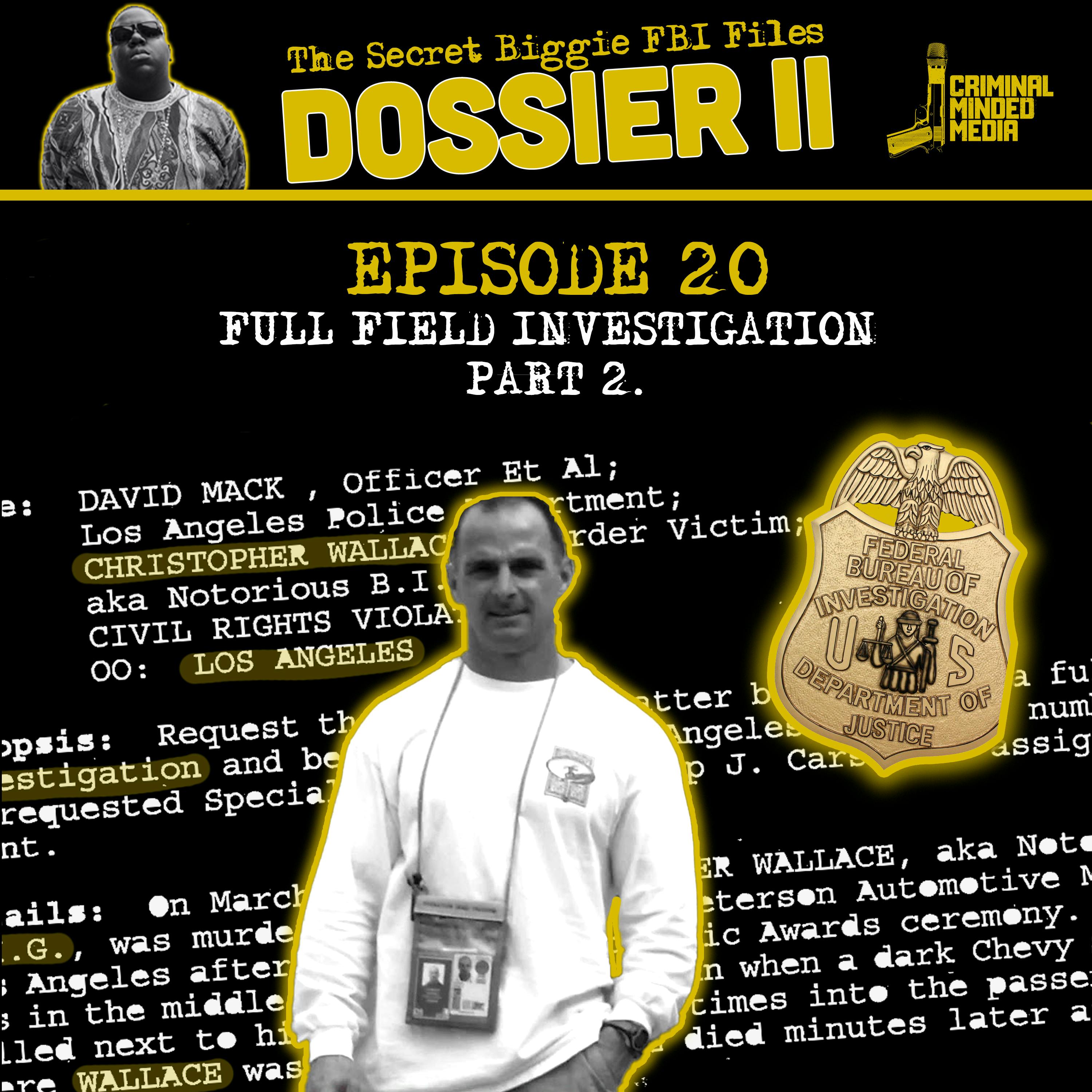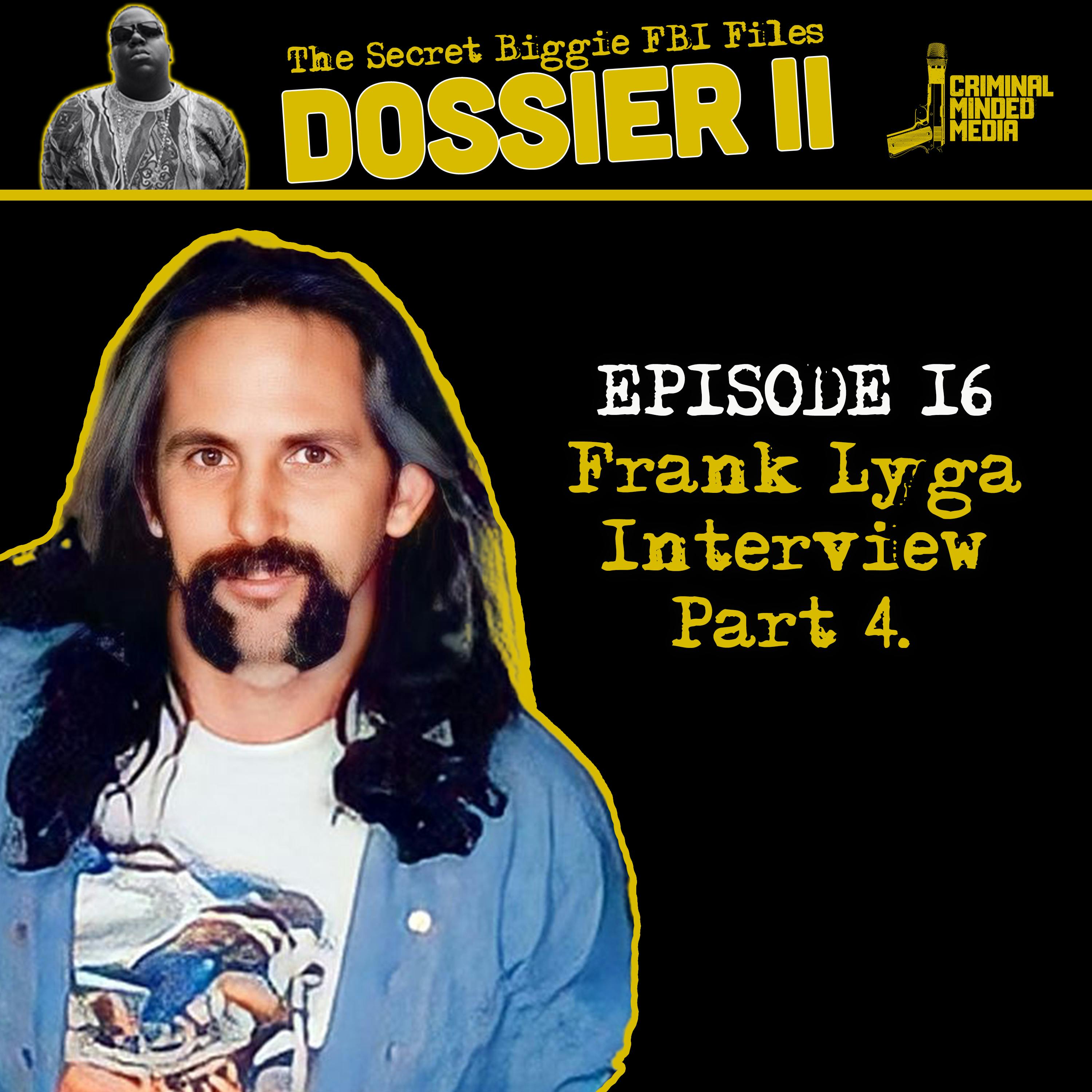
 THE DOSSIER
THE DOSSIER
Author: CRIMINAL MINDED MEDIA
Subscribed: 15,742Played: 157,664Description
FBI Agent Phil Carson has held onto a secret for fifteen years, which will prove for the final time that there was a cover-up of the murder of Hip-Hop Superstar The Notorious B.I.G. by officials at the LAPD.
Agent Carson is talking, and journalist Don Sikorski has the FBI Files to prove it.
This ground-breaking podcast spans 20 years inside the underbelly of crime in the dark forces of the LAPD that used power and influence to hide the evidence and facts.
LAPD Officers orchestrated the murder of Biggie Smalls.
The information contained inside The Dossier will shake the foundation of the LAPD and the City of Los Angeles, defining with evidence who shot and killed Biggie, but more importantly why the power players inside Los Angeles covered it up.
The Dossier Season II: The Secret Biggie FBI Files, is a production of Criminal Minded Media, DCP Entertainment, and Action Park Media.

























สวัสดี I’m glad I didn’t judge a book by its cover. Otherwise, I might not hire Somsri who brings more than 1,000,000 baht of revenue to the company. ฉันดีใจมากที่ไม่ได้ตัดสินใจคนจากแค่ภายนอก ไม่งั้นฉันคงไม่ได้จ้างสมศรีซึ่งเป็นคนสร้างรายได้ให้กับบริษัทกว่า 1,000,000 บาท
https://suoneriemp3.com/suonerie-hip-hop/ raccoglie la migliore musica di The Notorious BIG. Un grande genere di musica hiphop rap
sounds like a lot of the same players behind the scenes of the OJ case, where its alleged glenn rogers, a known serial killer, was responsible for nicole and ron's demise.
you will probably have to "sue" but from outside of the state...from/by another state...
no more music in the background! that shit sucks and makes I hard to listen to.. l
so.....are there any more episodes going to be posted? I check everyday like a junkie needing a fix...hahhaha!
I was actually able to contact KADING on Twitter then he reached out through email
Fuck me 💯 % they are quality but I’m fkd if I know how they haven’t paid his mum with this podcast
I sent you mr number to Greg Kadina but after reading & commenting on he then BLOCKED ME Tells me he’s a DICK
Biggys mum should have the mobile as this is public & everyone can see how’s Quilty
If this is public then how the fuck hasn’t Biggys mum been compensated????????
What’s SMH
Very interesting stuff!
Brilliant podcast. But why isn't Biggie's mum trying sue LA police again?
Wow, this Mario Hammond basically sounds like it was a continuation of Cointelpro around 2pac! Now all we need is LVMPD to release all their info on the Tupac case and maybe we can really get somewhere.
SMH
Based on Gene Deal's recounting of the events leading up to that fateful night, Puffy seems to be completely rewriting the narrative to shroud his influence on what happened.
k
#
buffalo